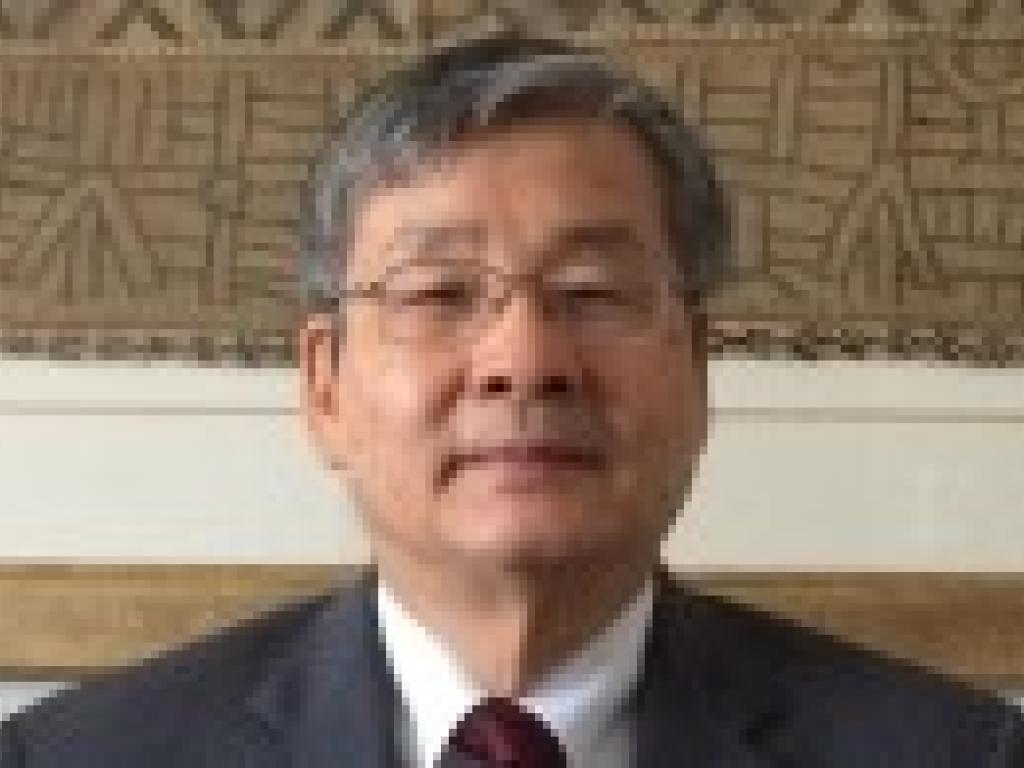The Link between Social Cohesion and Sustained Growth

Recent studies by the Poverty and Inequality Initiative (PII), the World Bank and others have reconfirmed that South Africa remains one of the most unequal countries in the world. These findings have underlined the urgency for effective policies to reduce the relentless poverty and inequality in the country. What is needed are strategies for inclusion that address the root causes of poverty, enhance opportunities for all – including through growth – and thus smoothen inequalities.
Prof. Hiroyuki Hino, a Visiting Professor at the Southern Africa Labour and Development Research Unit (SALDRU) until recently, believes the quest for such strategies requires deliberate attention to create social cohesion alongside out-of-the-box approaches to achieving economic growth.
Social cohesion as a cause and consequence of greater equality
"We need to address social cohesion, which involves how people feel towards others, whether they feel that they ‘belong’ to the society, and if they feel that they share a common future. A socially cohesive society is both a cause and consequence of greater equality, more trust, and living and working together more closely. The more cohesive a society, the higher its productivity, investment and, hence, economic growth."
Prof. Hino’s collaboration with the PII started in 2014 when he joined Pro-Vice Chancellor: Poverty and Inequality and SALDRU director, Prof. Murray Leibbrandt, and Prof. Justine Burns, Economics department, in convening a workshop on social cohesion in South Africa. The event brought together most prominent thinkers of the subject in the country, and from abroad, and marked the beginning of a significant social cohesion research project under the banner of the PII. Prior to that Prof. Hino worked on African economic development as the economic advisor to the Prime Minister of Kenya, as a senior advisor to the African Department of the International Monetary Fund (IMF), and as an academic at Kobe and Yale universities.
The social cohesion research project explored the relationship between social cohesion and economic inequality in South Africa, and the institutional changes needed to promote social cohesion and reduce inequality. The recently completed multi-disciplinary study was a collaboration between the Agence Française de Développement (AFD), the Institute for Justice and Reconciliation (IJR), and UCT’s PII.
The value of multi-disciplinary research
Prof. Hino, an economist, says there is immense value in a multi-disciplinary approach to research. “Traditionally, economists have not worked with anthropologists, sociologists, historians …. But there are great benefits in facilitating communication between different disciplines. How people live – including as an economic agent – is intrinsically linked to history, society and politics. Multi-disciplinary collaborations help to go beyond the ups and downs of numbers.”
Over the past 20 years, Prof. Hino has been involved in bringing researchers from different backgrounds together to work on a number of policy issues for African development. His IMF and Kenyan experiences especially involved negotiating with people and connecting the right individuals to work together. “To be able to understand and communicate with others from different cultural and social backgrounds, to understand opposing views of others, is a key ability – and an important one for policy-making from the conceptualisation stage onwards.”
Lack of social cohesion a barrier to economic progress
Prof. Hino says that social cohesion should not be thought of something that is abstract as it relates to each fabric of society, such as one’s family, village or town, or place of work. The country’s history of discrimination means that workplaces – be it a farm, a mine, or a manufacturing company – typically are plagued by mistrust and a lack of cooperation, which constrains employees’ sense of belonging and long-term commitment to the employer. According to Prof. Hino, the current economic struggles in South Africa can also be attributed in part to this lack of cohesion in the workplace.
The AFD-IJR-UCT study found perceptions of division in South Africa are rooted in four systemic and structural issues, all linked to the legacy of apartheid: economics, politics, race, and culture.
The importance of social cohesion for land reform
Prof. Hino believes that the difficulty in engendering cooperation and trust is also at the root of poverty in rural villages in South Africa. Over the last three years, he worked with Prof. Lungisile Ntsebeza, who was until recently the DST-NRF Research Chair in Land Reform and Democracy in South Africa and A.C. Jordan Chair in African Studies at UCT, on research on poverty in villages in the former Transkei. The work included the Delindlala Communal Property Association (CPA), a promising land reform group consisting of villagers from Luphaphasi, who received a 2009-hectare farm under the land redistribution programme. The goal was to study the Delindlala CPA as a case study on land, poverty and social cohesion with the aim of putting forward a model of success for such community-led land redistribution initiatives. Profs. Ntsebeza and Hino and other colleagues are carrying this study forward, broadening its scope to cover other farming projects in Transkei with a view to understanding root causes of the absence of village cohesion, and drawing policy implications.
Reflections on social cohesion in Africa
While Prof. Hino has exchanged his SALDRU office for one at Duke University in the coming academic year, he remains committed and passionate to continue his involvement in projects and collaborations started over the last three years.
The PII hopes to have him back for a seminar later this year with the launch of a book, From Divided Pasts to Cohesive Futures? Reflections on Africa. It is a multi-authored volume edited by John Lonsdale, Frances Stewart, Arnim Langer and Hiroyuki Hino and will be published by the Cambridge University Press (CUP) towards the end of this year. The publication is a sequel to Ethnic Diversity and Economic Instability in Africa: Interdisciplinary Perspectives which was co-edited by Hino, Lonsdale, Stewart and the late Gustav Ranis in 2012.
Article by: Charmaine Smith, PII communication manager, May 2018